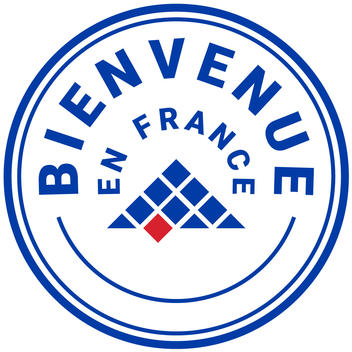10 things you need to know about the "Student and Campus Life Contribution" (CVEC)

Students admitted to a French institution of higher education are subject to a fee known as the CVEC, which helps to finance on-campus programs that enhance the student experience. Here is everything you need to know about this annual fee.
CVEC is for "Contribution Vie Etudiante et de Campus" (Student and Campus Life Contribution)
1. Admission to a French institution of higher education determines whether one is affected by the CVEC
The CVEC applies to French and foreign students enrolling for a degree program in a public or private institution of higher education in France.
This includes students enrolling in a program to prepare them for admission to a Grande École (classe préparatoire aux grandes écoles, CPGE), students in dual degree programs, and students in apprenticeship programs.
Not subject to the CVEC are the following categories of students:
- Students enrolling in technical certificate programs (brevet de technicien supérieur, BTS), students pursuing an undergraduate art degree (diplôme des métiers d'art, DMA), and students in postsecondary accounting programs offered in secondary schools.
- Students in continuing education programs paid for by an employer.
- Exchange students in programs governed by an agreement between a home institution abroad and a host institution in France. Such students are not officially considered to be enrolled in France.
2. Certain exemptions from the CVEC are recognized
Some students are not obliged to pay the CVEC contribution. They include:
- Students receiving need-based scholarships managed by CROUS (recipients of scholarship grants from the ministries of higher education, culture, or agriculture), students receiving French government scholarships and students financed by one of France’s regions to study in paramedical, health, and social programs
- Students who are refugees, student aliens who have been granted “subsidiary protection” (protection subsidiaire), and students seeking asylum.
Specifically not exempt from the CVEC are students in the following categories:
- Students receiving foreign government scholarships
- Students receiving grants from private entities (such as a foundation).
3. The CVEC may be paid online or in cash
To pay online:
- Register at the site messervices.etudiant.gouv.fr.
- Then connect to the dedicated CVEC site cvec.etudiant.gouv.fr.
- Enter the city in which you are studying and pay the CVEC with a debit or credit card.
- Download and retain the proof of payment, which you will need to show when you register at your university or other institution.
To pay in cash in a FDJ Nirio's network point:
- Register at the site messervices.etudiant.gouv.fr.
- Then connect to the dedicated CVEC site cvec.etudiant.gouv.fr.
- Download a payment notice.
- Make the payment in the FDJ Nirio network of payment points.
- Within two business days you will receive a proof of payment by e-mail. Download and retain this proof of payment, which you will need to show when you register at your university or other institution.
4. Even if you are exempt from the CVEC, you must register at cvec.etudiant.gouv.fr
If you fall into one of the categories of students who are exempt from the CVEC, you still must register at messervices.etudiant.gouv.fr and then go to cvec.etudiant.gouv.fr, where you will be able to download a notice of exemption. You will need to show this notice when you register at your university or other institution.
5. The foregoing steps must be completed before you attempt to register at your university or other institution
You MUST obtain your proof of payment or notice of exemption before attempting to register. You can do this online before leaving for France. You will have to show proof of payment or a notice of exemption in order to register.
6. The amount of the CVEC is €105
The amount of the CVEC for the 2025/26 academic year is €105.
7. The CVEC is assessed annually
The CVEC must be paid once and only once each academic year. If you enroll in more than one program in a given year and pay the CVEC in connection with your first enrollment, you will not need not pay it again until the following academic year.
8. In some cases, it is possible to apply for a refund of the CVEC
You may be eligible to obtain a refund of the CVEC if, in the course of the year, you become exempt from payment. To obtain a refund, apply to CROUS before May 31 of the academic year for which you seek a refund.
9. The CVEC improves student life
The CVEC was adopted in March 2018 under a new law on “Student Orientation and Success.” Its purpose is to improve student services, specifically in the areas of social life, health, culture, and athletics.
The funds raised through the CVEC program will finance activities whose primary beneficiaries are students. These will take a variety of forms—among them access to health care, social support, recreational opportunities, and artistic and cultural events. The result will be an overall improvement in student services and support.
The CVEC requirement is entirely separate from other requirements pertaining to the French medical insurance system (Sécurité Sociale).
10. Informations for registration and payment are available in English
The website messervices.etudiant.gouv.fr and the website cvec.etudiant.gouv.fr are available in English.




















































